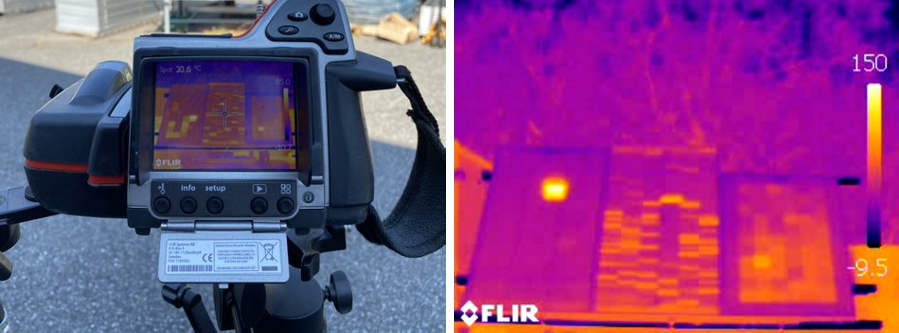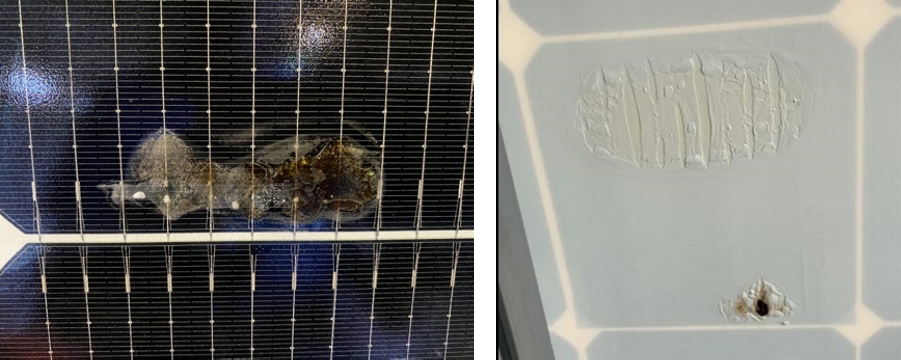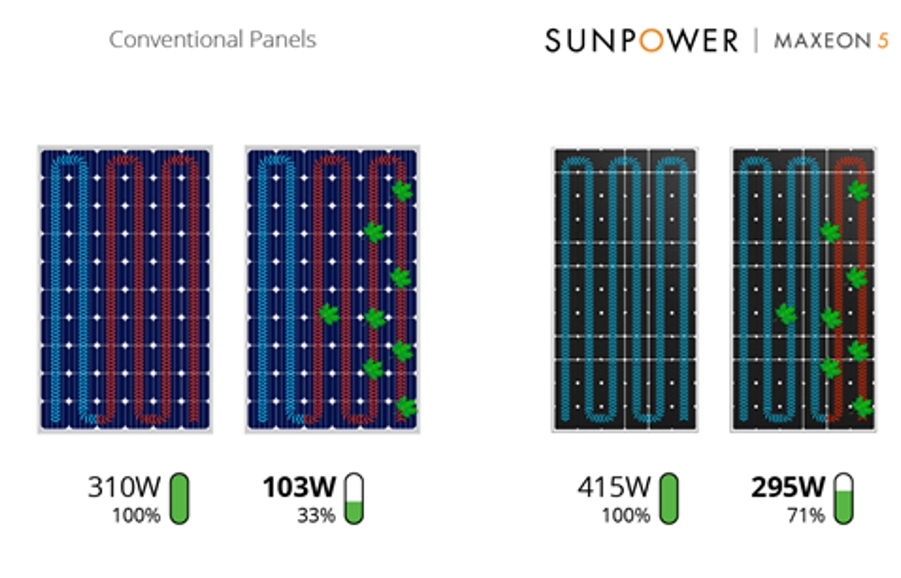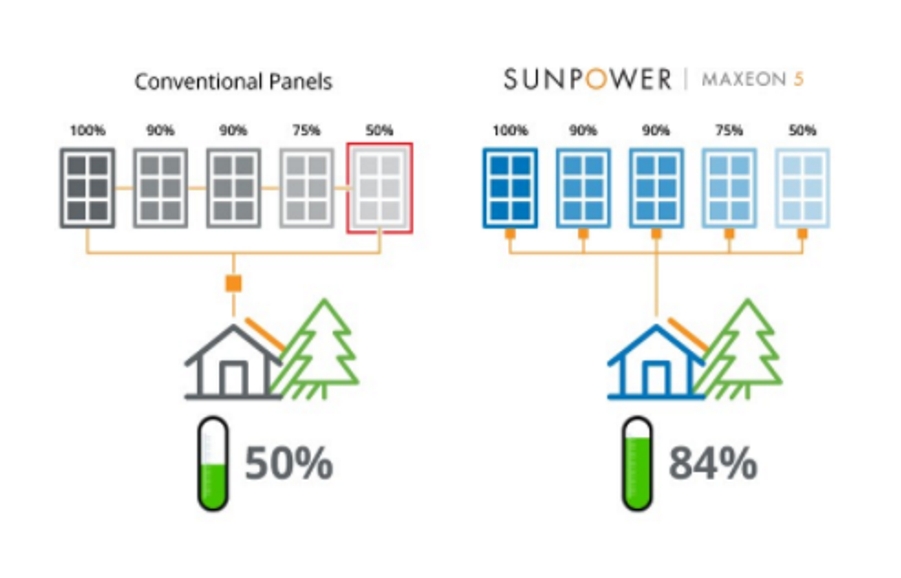
One of the first things homeowners should consider when choosing a rooftop solar power system is the possible impact of shade. Chimneys, trees, or accumulated dust and dirt can hinder solar production. Does this make your home unsuitable for solar?
Not necessarily.
New AC Module home solar solutions offer powerful solutions to shading. AC Modules combine industry-leading SunPower Maxeon solar panels with advanced microinverter technology from Enphase – each possessing unique abilities to minimise the effects of shade. And the integrated system is stronger than the sum of its parts.
Let’s compare the Maxeon advantage to conventional solar under shade.
The Impact of Shade on a Solar Panel
Most solar panels are made up of dozens of small, connected solar cells. When a conventional solar panel is even partially shaded from trees or dirt, the current running through its cells meets resistance. Any compromised cell then tries to match the current of its neighbouring cells, causing it to convert the energy from those cells into heat. In conventional cells, this can generate hotspots with cell temperatures spiking to more than 150ᵒ C in less than 2 minutes!1 Campeau, Z. et al. "SunPower Panel Degradation Rate," SunPower white paper, 2013.

New AC Module home solar solutions offer powerful solutions to shading, combining industry-leading SunPower Maxeon with advanced microinverter technology from Enphase.
A thermal video scan shows the relative temperature of a conventional panel (left, 150ᵒ C) and SunPower Maxeon and SunPower Performance panels (middle and right) after one cell was partly shaded on each panel and its bypass diode removed.
To cool the cell and protect the panel from damage, most conventional panels build in a “short cut”, a device called a bypass diode, that allows the current to continue flowing around the shaded cell areas. However, this short cut path means that large parts of the panel are shut off from producing power. This can cause significant power losses in shade, even when just one cell is shaded (see below). Over time, repeated shading can cause these inexpensive bypass diodes to wear out due to overuse. Research in Japan found that 47% of panels had defective diodes after ten years with daily partial shading.2
Kontges, et al. (2014). Performance and Reliability of Photovoltaic Systems, Subtask 3.2: Review of Failures of Photovoltaic Panels.
Without bypass diodes in place, conventional panels become subject to damage and performance loss from hotspots.

Hot spots on the front and back of a conventional solar panel after just a few minutes in partial shade without a bypass diode.
Hot spots on the front and back of a conventional solar panel after just a few minutes in partial shade without a bypass diode.
How AC Modules Perform Better in Shade
SunPower panels, on the other hand, feature a unique cell architecture that keeps the cell temperature much lower. When the current in a SunPower panel encounters shade, it meets less resistance due to the cell’s design and properties. When the current meets less resistance, less heat is generated, and your panel runs at a lower temperature. This design ensures your panels are protected and will function properly for the long term. Every time there is shade, this minimises section shutdowns that limit your power.
For example, under the identical shading scenario below, a SunPower Maxeon 5 panel generates nearly 3x more power. This is due to the combination of two advantages: a higher-powered panel and superior performance in shade.

Microinverters: Make the Most of Every Drop of Sunshine
SunPower brand solar panels are a critical foundation and a long-term investment that can be maximised through one more piece: the microinverter. In a home solar system with microinverters, each solar panel works independently. Shade falling on a single panel affects only that panel. The rest of the modules keep humming along independently, each at their maximum potential.

When you consider the impact of shade on a panel’s energy generation potential, the examples above demonstrate how the design and engineering that go into your panel, can lead to a more reliable source of energy over the lifetime of your system.
And while some panel manufacturers will not even warrant their panels against damage from shading,*
SunPower Maxeon solar panels are backed by a 40-year warranty. Subject to terms and conditions. Not available in all countries. 40-year warranty requires registration, otherwise our 25-year warranty applies.
, even when shaded.
SunPower AC modules make solar possible for more homes in more places than ever before. Optimised for shade and built to deliver maximum clean energy for 40 years or more, AC modules are what’s next in home solar. And they’re here today.
 Global/EN
Global/EN